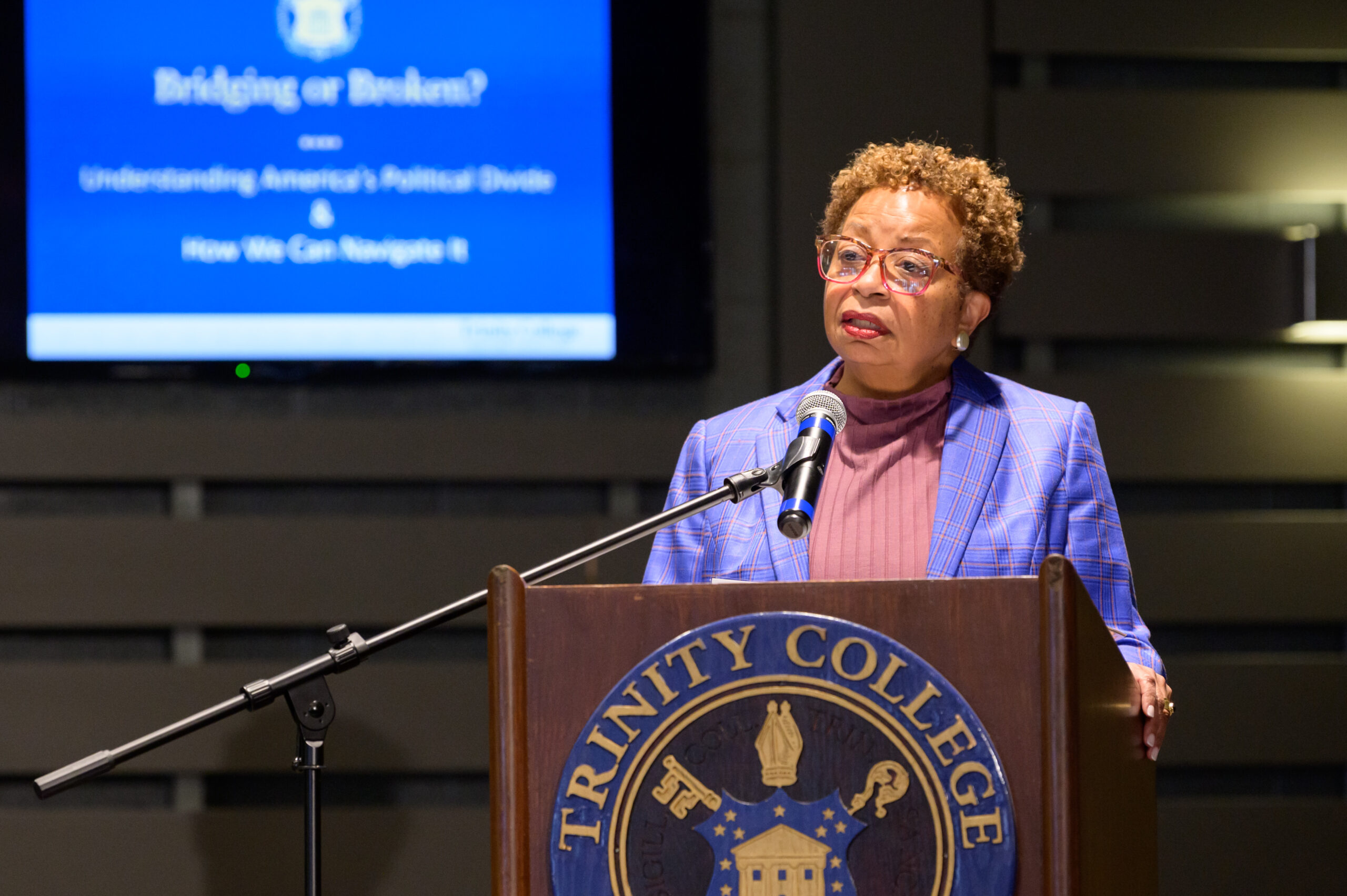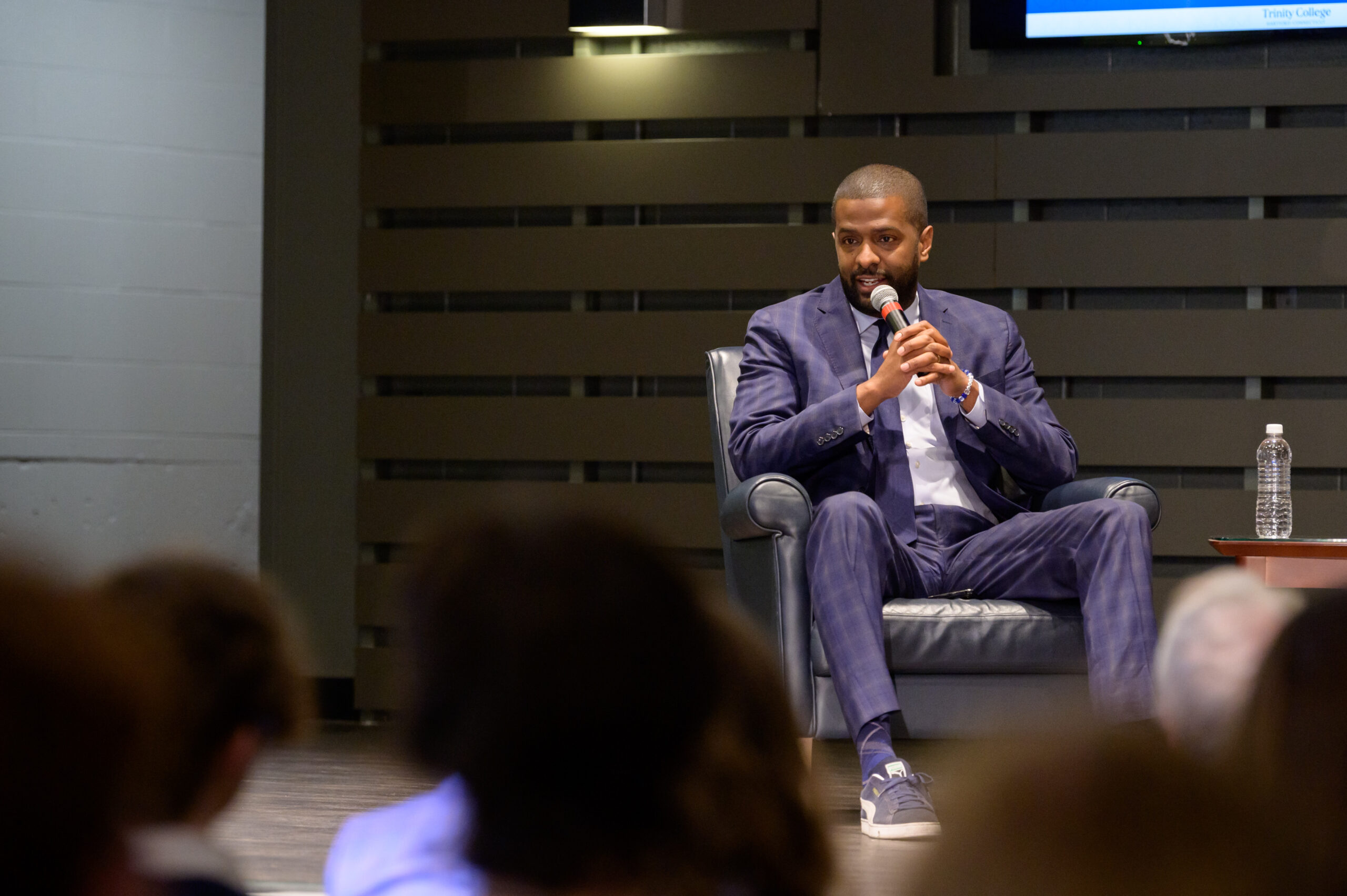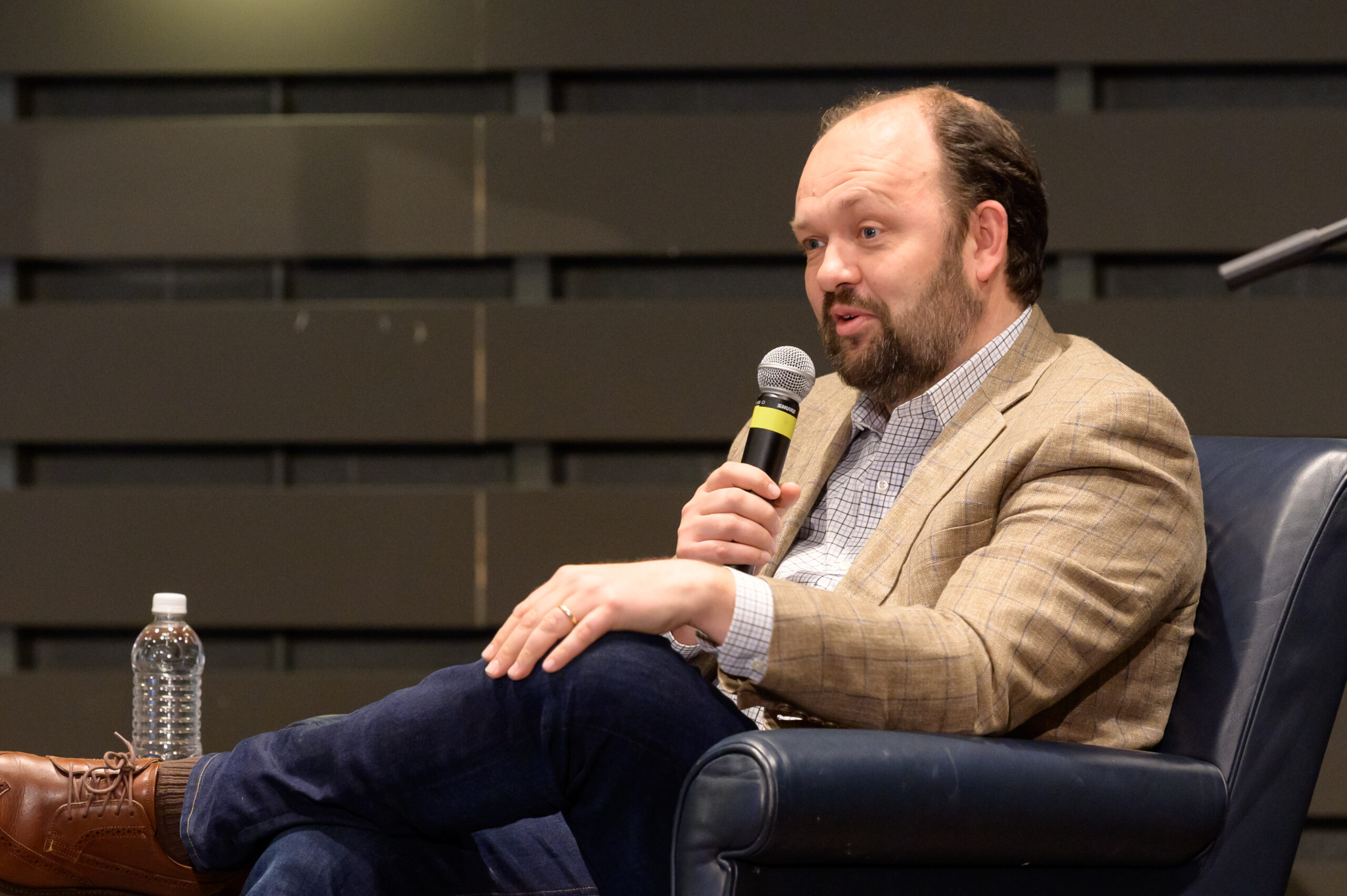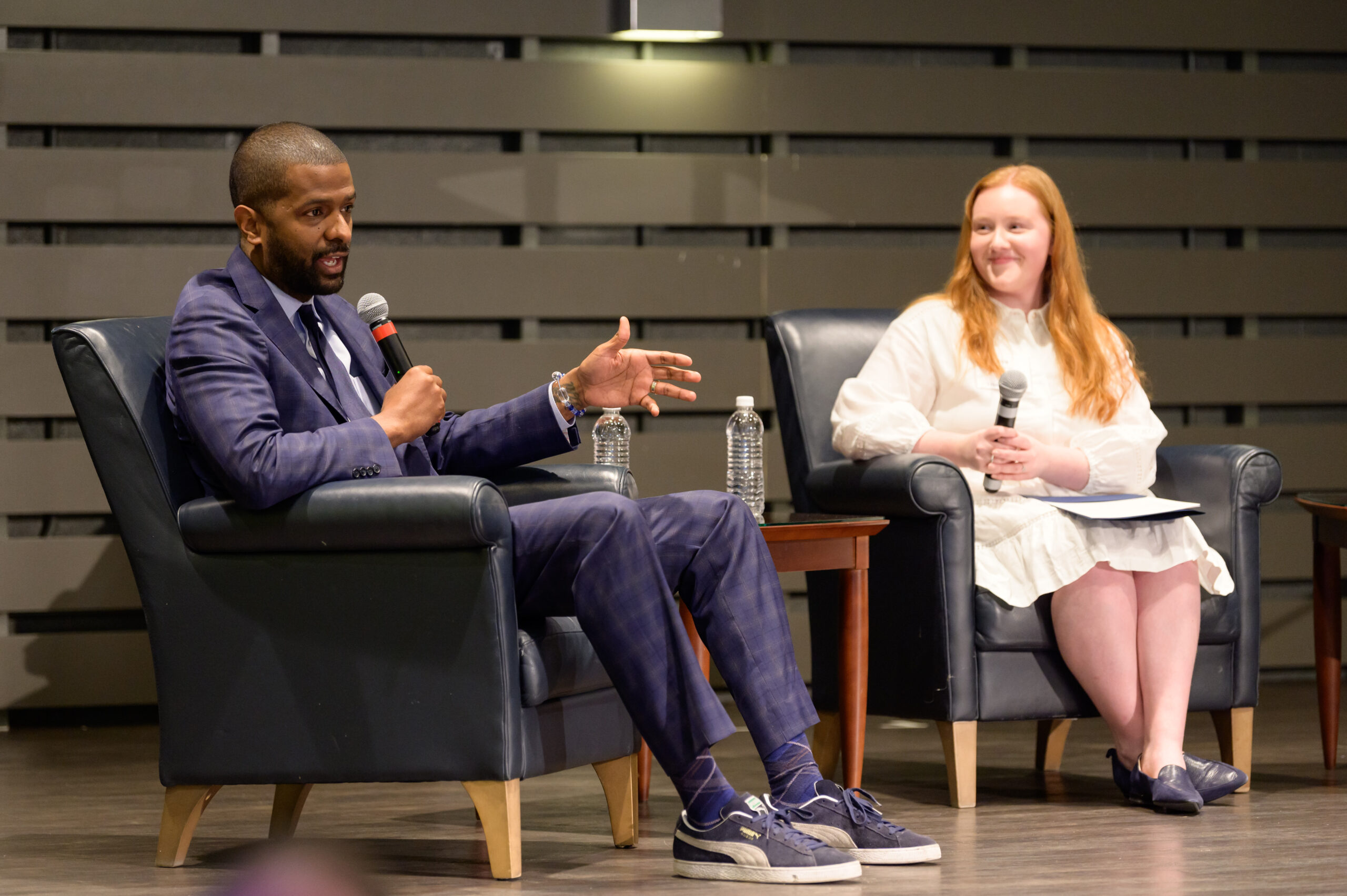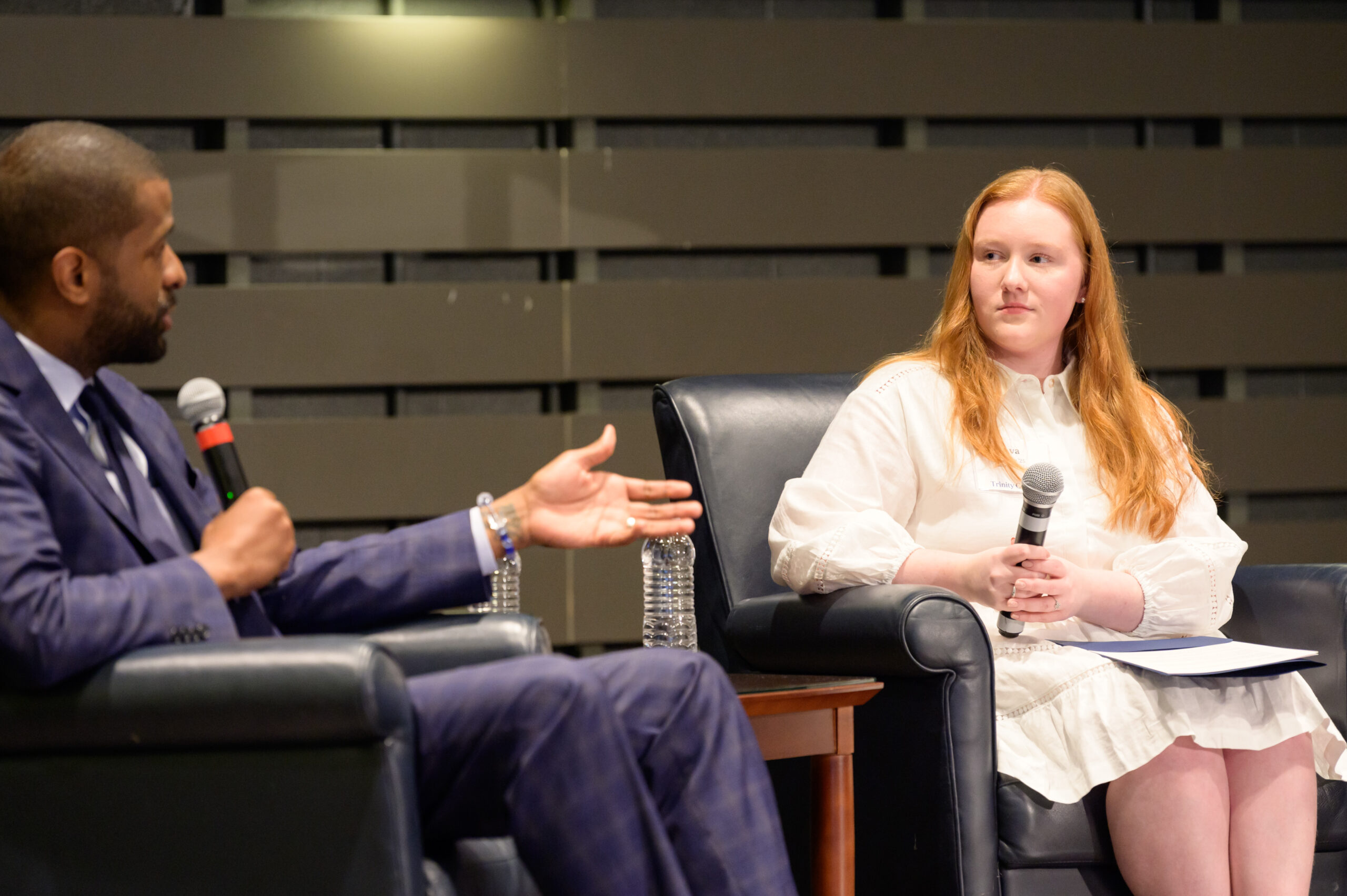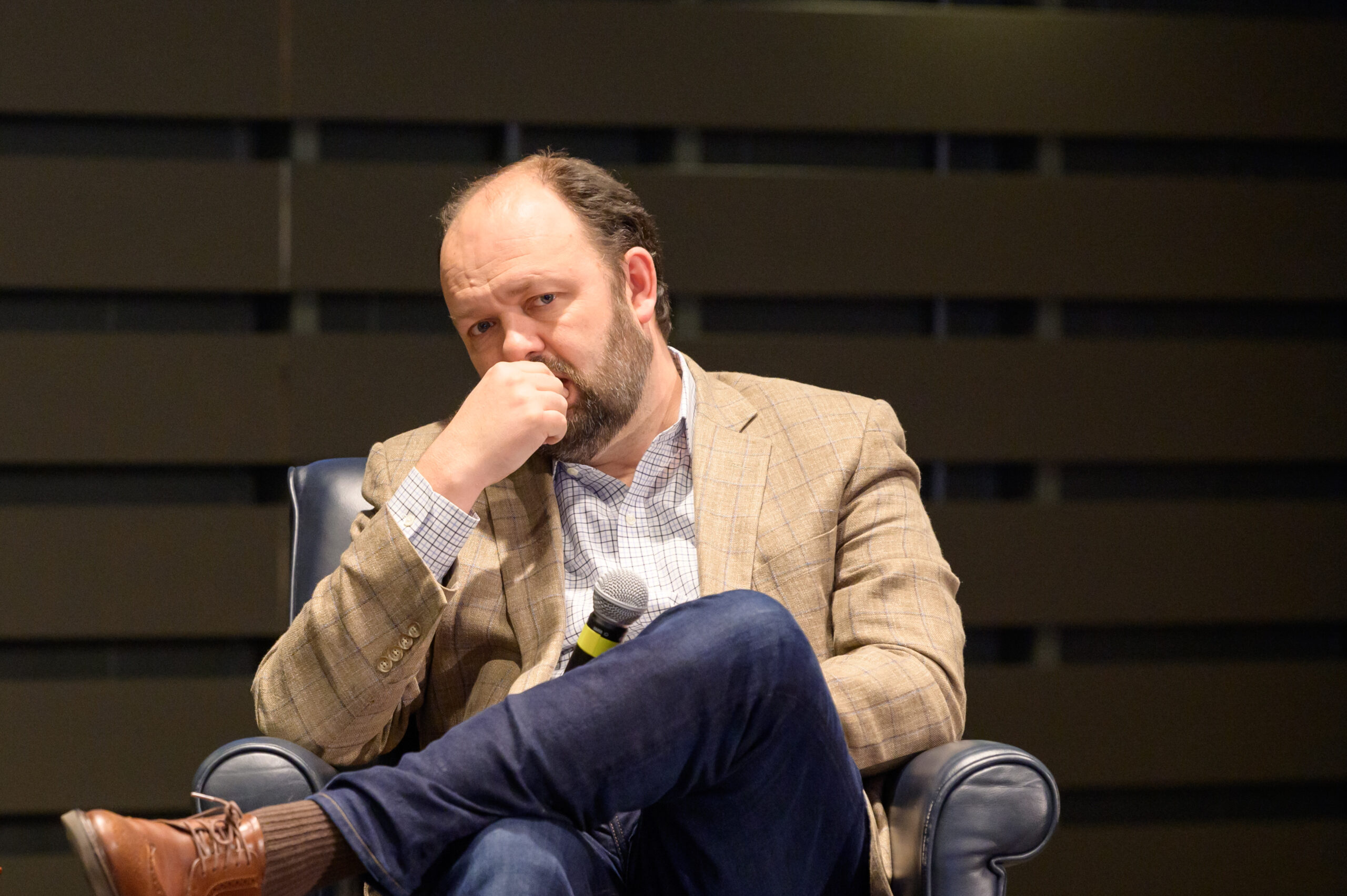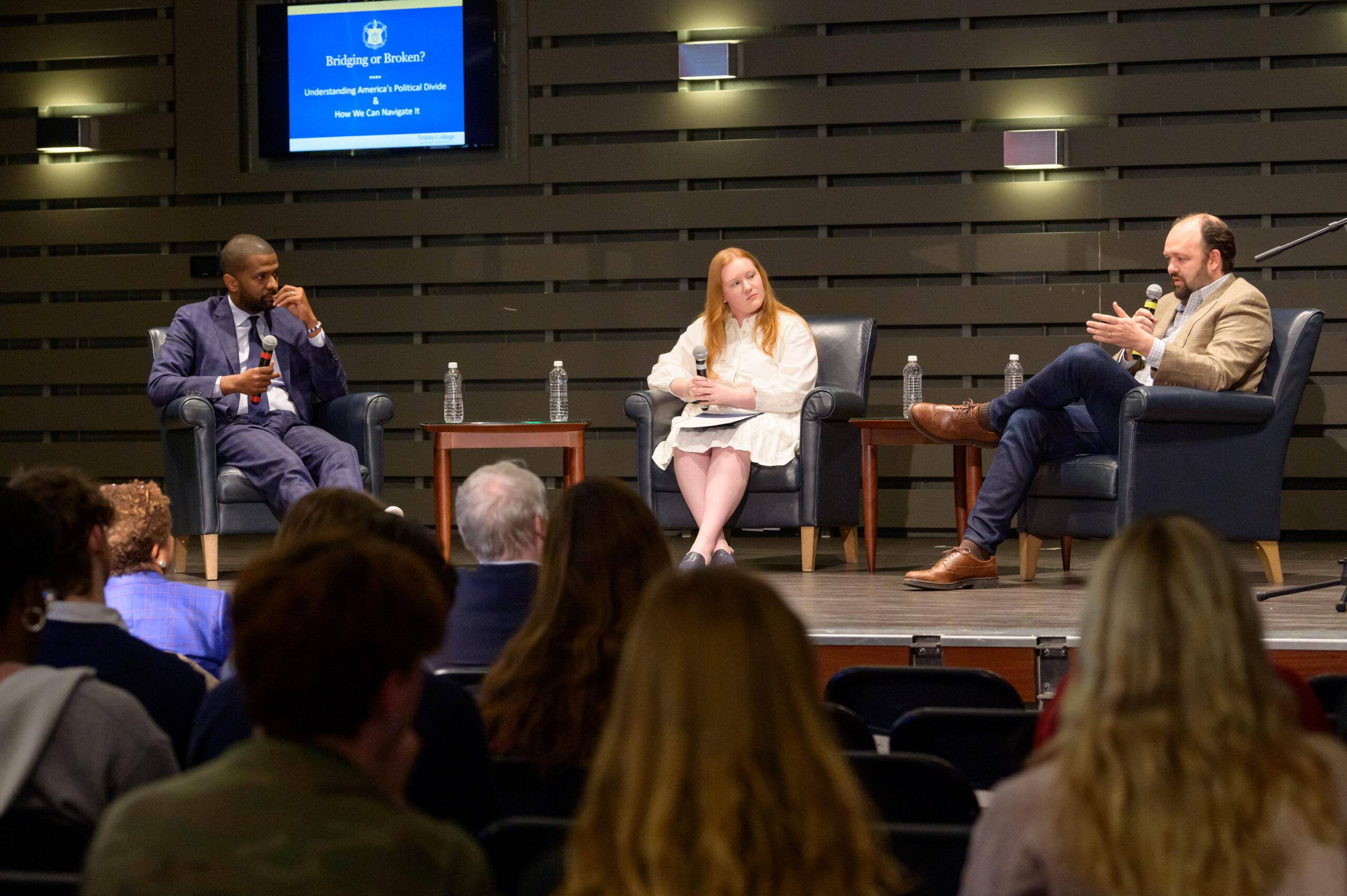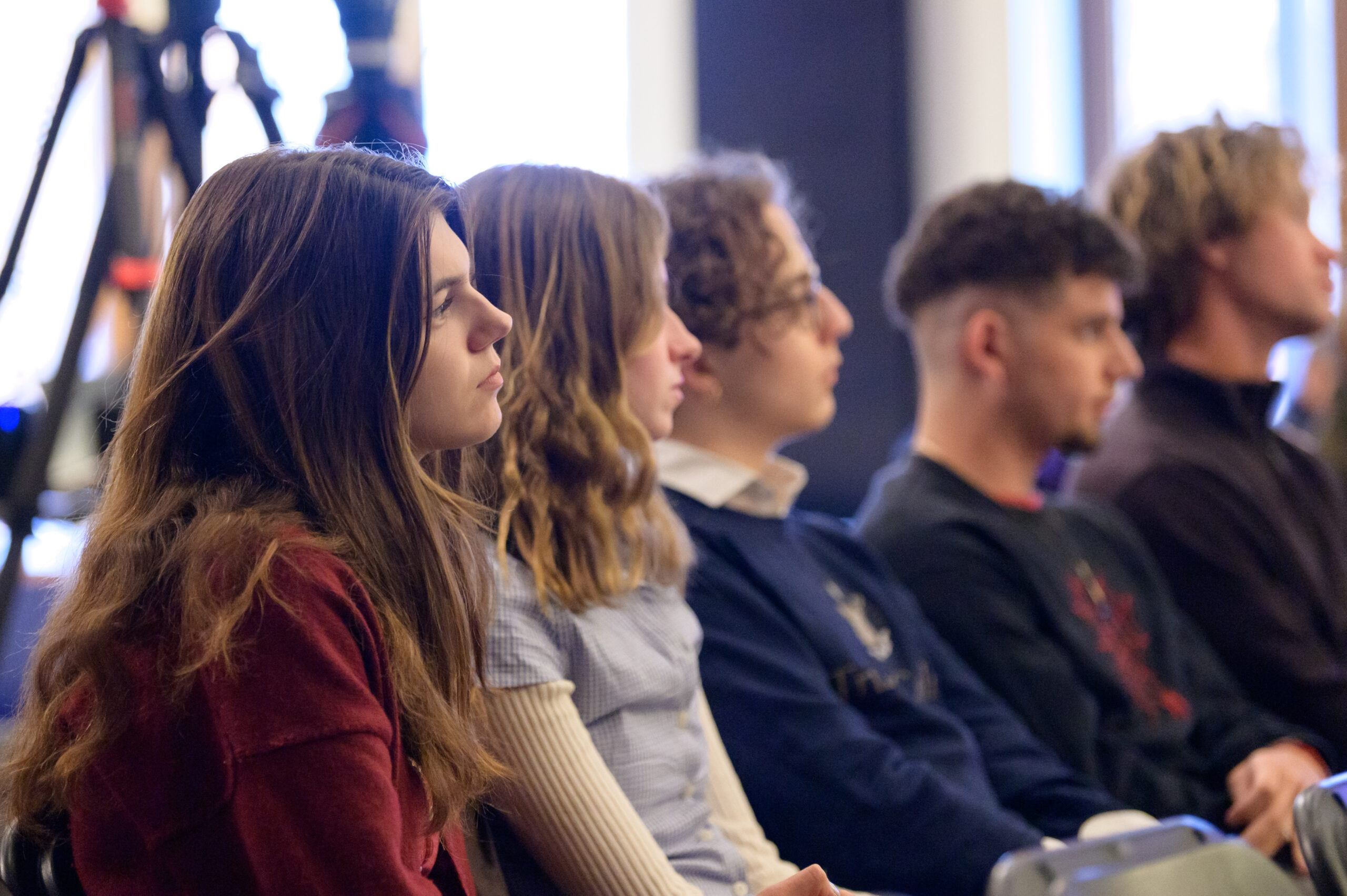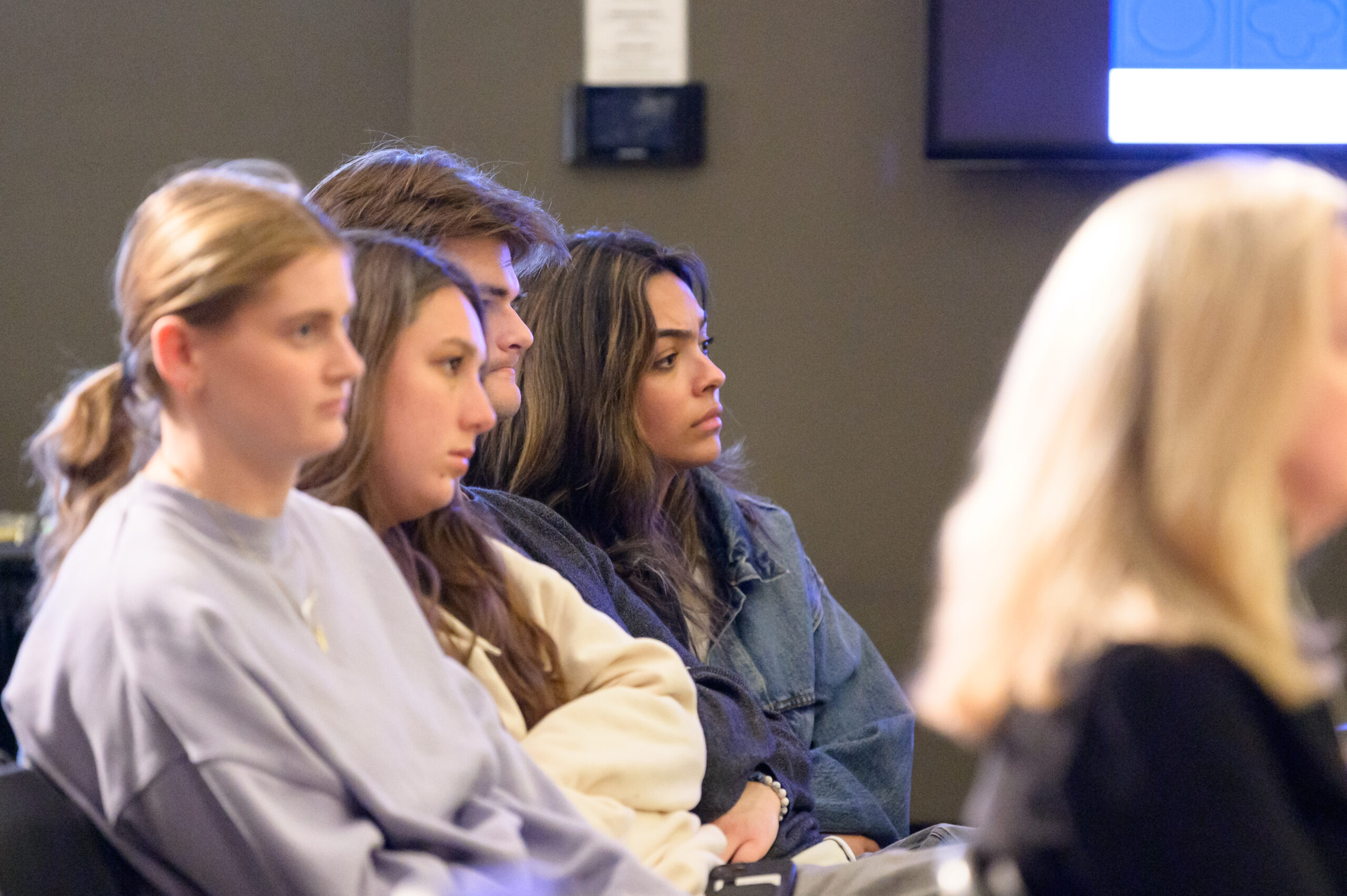Students Consider Difficult Questions through ‘Bridging Divides’ Conversation
Are the current political divisions in America too deeply entrenched to heal, or is there still a path toward meaningful dialogue and cooperation?
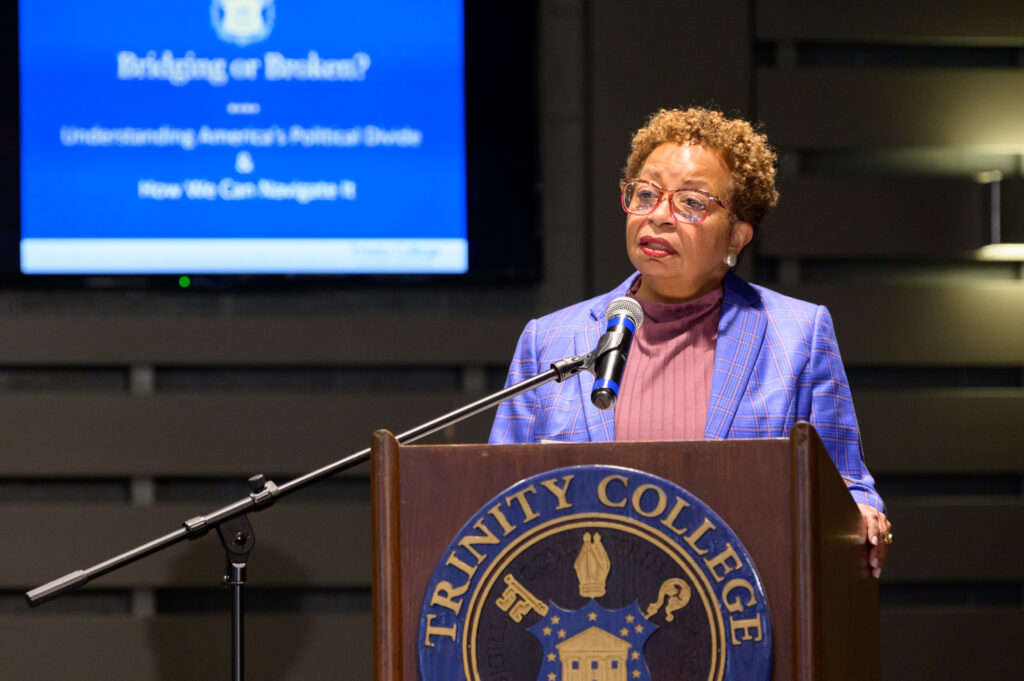
Trinity College President Joanne Berger-Sweeney recently invited students to a conversation between Bakari Sellers, a Democratic commentator and former South Carolina state representative, and Ross Douthat, a conservative New York Times columnist and author, as they tackled one of the most pressing issues of the moment.
During the program called “Bridging Divides: Bridging or Broken? Understanding America’s Political Divide and How Can We Navigate It,” held March 26 in the Cornelia Center, Sellers and Douthat debated the roots of polarization in American politics, its impact on democracy, and whether bipartisanship is still possible in today’s climate.
The discussion was part of Trinity’s continuing Bridging Divides series, which was announced by Berger-Sweeney in February 2024 as a way to promote discussions about challenging topics that are shaping viewpoints but also dividing society and civil discourse. The event’s conversation, Berger-Sweeney said, served as a model for how to disagree without animosity, listen empathetically, and engage in meaningful dialogue.
In her welcoming remarks, Berger-Sweeney called the program “a thought-provoking discussion on the complex contours of America’s deepening political divide and how we, as engaged citizens, and you, as future leaders, can work toward understanding and navigating it.”
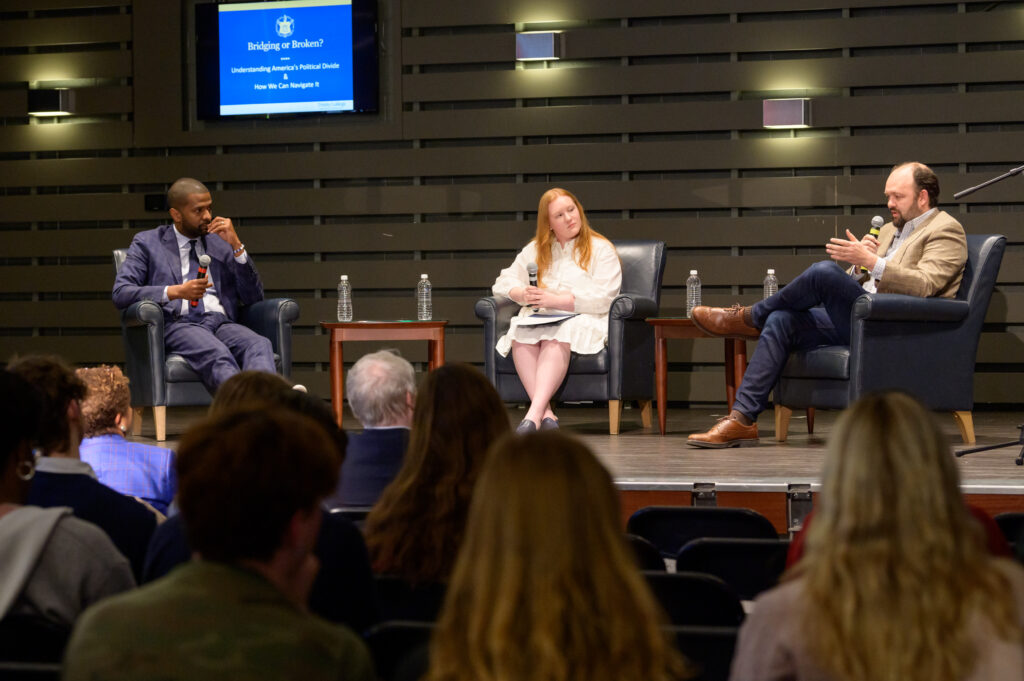
Moderated by Student Government Association President Ava Caudle ’25, the discussion touched on the polarization of college campuses and the country in general, the possible origins of this increasing division, and how to help build connections and lessen animosity.
“Arguments about polarization are not unique to the Trump era,” Douthat said. “I think they’re a long-term story in American life that goes back to the 1960s.” Both panelists agreed on the impact of social media and how it changed the news cycle. Douthat advised the audience to think of political action in practical ways, rather than posting continuously on social media in a way that maintains constant anxiety and anger.
Sellers said, “People on both sides of the aisle want to bring back character and competence to our political discourse.” Later in the evening, he spoke about the importance of independent responsibility. “I believe that there is a certain level of responsibility that all of us have in a participatory democracy, to preserve it,” he said. “We have to do a better job ourselves of seeking out the news and truth.”
Caudle wrapped up the program by asking each participant for advice on how to make sure others feel heard and understood. Sellers stressed common decency. “I think people just generally talk too much,” he said. “When you give people the respect of recognizing them and hearing them, we can begin to rebuild this fragile democracy. I think seeing people and listening to them goes a long way.”
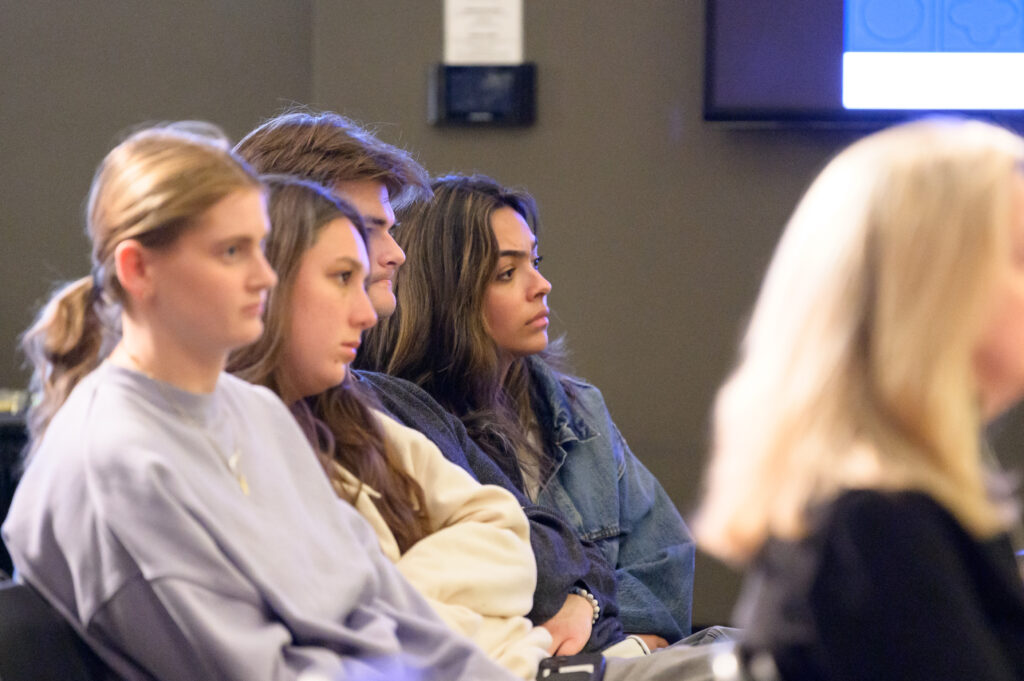 Douthat suggested, “Try to figure out one real issue where you think your political coalition is wrong… You should have that issue in mind as a starting place for thinking about how people who are not in your coalition see the world. I don’t think you have to convince yourself that you will completely understand the other side’s perspective, but a good place to start is finding where you think the other side is right.”
Douthat suggested, “Try to figure out one real issue where you think your political coalition is wrong… You should have that issue in mind as a starting place for thinking about how people who are not in your coalition see the world. I don’t think you have to convince yourself that you will completely understand the other side’s perspective, but a good place to start is finding where you think the other side is right.”
Douthat joined The New York Times as an opinion columnist in April 2009. Often writing about politics, religion, moral values, and higher education, his column appears every Tuesday and Sunday. Previously, he was a senior editor at The Atlantic and a blogger on its website. He is the author of The Deep Places: A Memoir of Illness and Discovery, published in 2021. He also is the film critic for National Review.
Sellers made history in 2006 when, at 22 years old, he became the youngest member of the South Carolina state legislature and the youngest African-American elected official in the nation. He is the author of The New York Times best-selling book My Vanishing Country: A Memoir. His Bakari Sellers Podcast addresses topics including politics, race, sports, media, and much more. Sellers currently practices law and is a political contributor for CNN.
See more photos in the gallery below.
Bridging Divides: Bridging or Broken? Understanding America’s Political Divide and How Can We Navigate It
Bridging Divides: Bridging or Broken? Understanding America’s Political Divide and How Can We Navigate It
